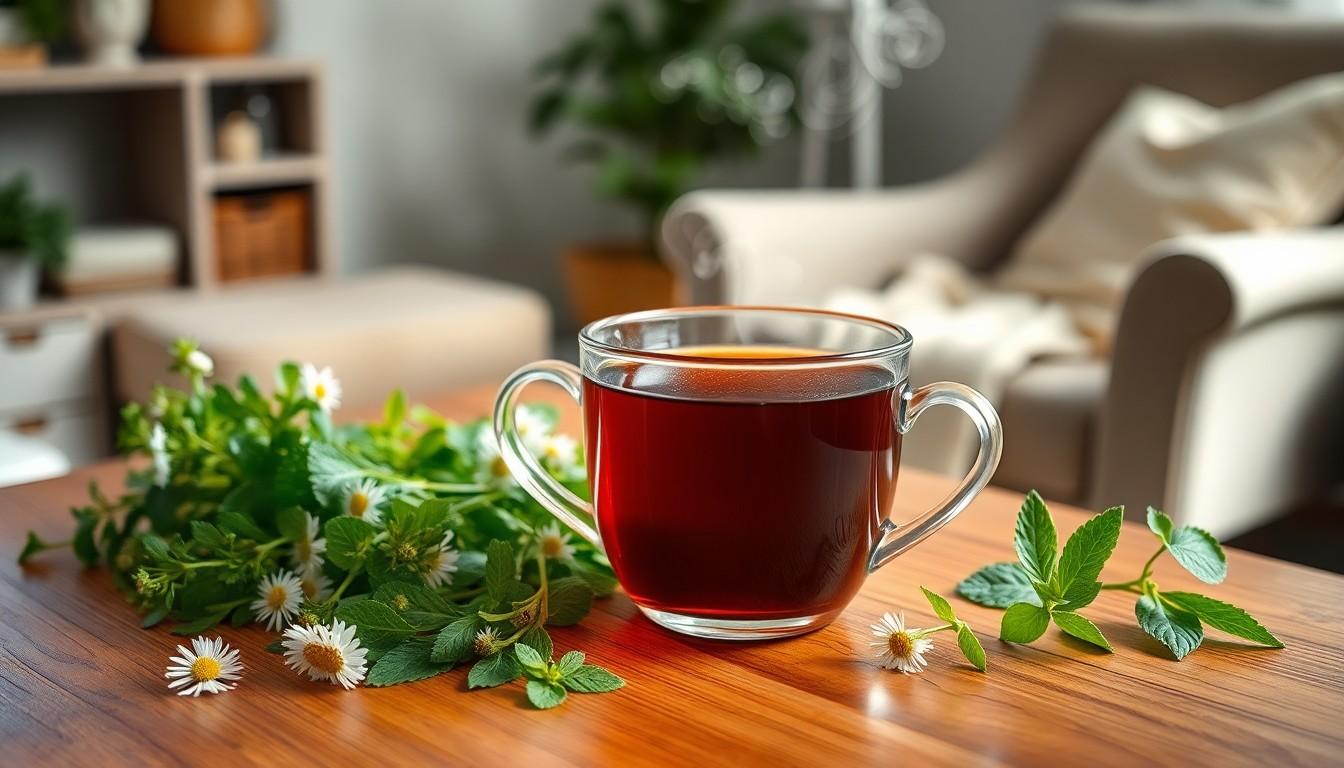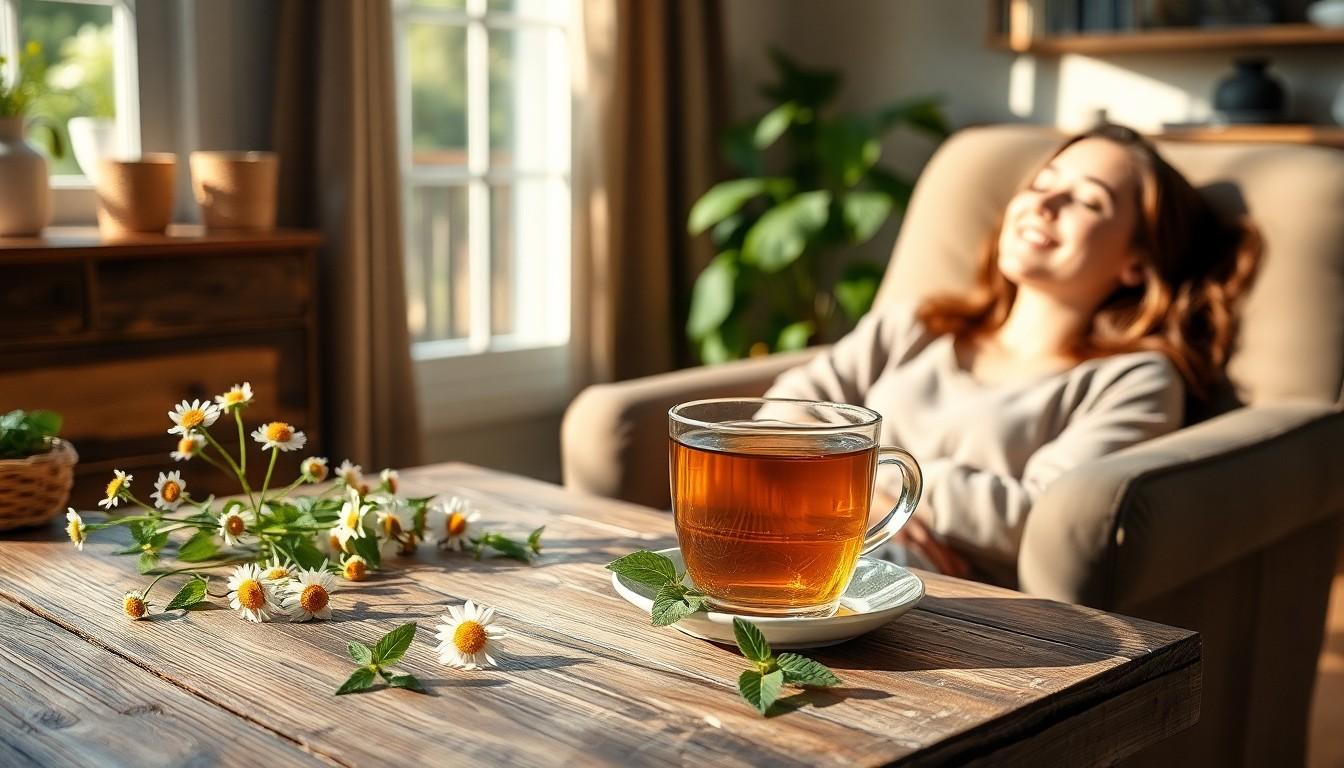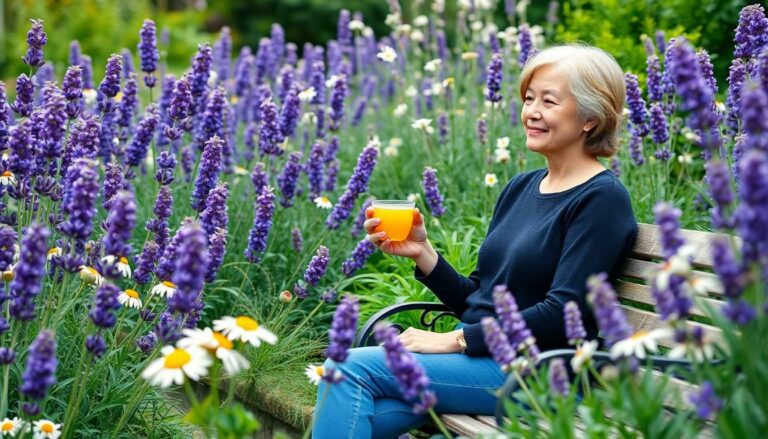In a world where stress has become a daily companion, wellness herbal tea emerges as a soothing sidekick. Imagine sipping a warm cup of nature’s best while your worries melt away like ice cream on a summer day. These delightful brews aren’t just for cozy afternoons; they pack a punch of health benefits that’ll make even your doctor nod in approval.
wellness herbal tea
Wellness herbal tea combines various plant-based ingredients that promote relaxation and health. Many people enjoy these teas for their calming properties and diverse flavors. Ingredients often include chamomile, peppermint, and rooibos, each offering unique health benefits. Chamomile soothes the mind and aids sleep, while peppermint can assist with digestion.
Rooibos, a caffeine-free option, delivers antioxidants that support overall well-being. Custom blends enhance wellness effects by targeting specific health concerns, such as stress relief or immune support. Herbal teas also incorporate adaptogens like ashwagandha, which help the body adapt to stress.
Drinking wellness herbal tea encourages mindfulness, transforming a simple beverage into a moment of relaxation. Sipping tea allows individuals to pause and reflect, creating space for mental clarity. The aroma of herbal blends provides an additional sensory experience that contributes to emotional well-being.
Research supports the health benefits of herbal teas, with studies indicating that regular consumption can lower stress levels and enhance mood. Many healthcare professionals recommend herbal teas as part of a holistic approach to health.
With diverse options available, individuals can choose flavors and blends that align with personal preferences and health goals. Exploring the world of wellness herbal tea invites exciting new tastes while promoting a healthier lifestyle.
Benefits of Wellness Herbal Tea

Wellness herbal tea provides numerous advantages for both physical and mental health. These benefits contribute to overall well-being and enhance daily life.
Physical Health Benefits
Herbal teas promote various aspects of physical health. Chamomile aids digestion and improves sleep quality, while peppermint soothes upset stomachs. Rooibos contains antioxidants that support the immune system, helping to fight off illnesses. Regular consumption of herbal teas can enhance hydration, a critical element for maintaining bodily functions. These teas, tailored to specific health concerns like stress relief or respiratory support, offer individuals targeted benefits that align with their wellness goals. Adaptogens such as ashwagandha support the body’s response to stress, contributing to a balanced physical state.
Mental Health Benefits
Drinking wellness herbal tea encourages a state of mindfulness and relaxation. This practice fosters moments of pause, promoting mental clarity and emotional stability. Chamomile and lemon balm are known for their calming properties, which can help reduce anxiety and boost mood. Regular tea consumption correlates with lower stress levels, helping to cultivate a sense of peace. Engaging in the simple act of preparing and enjoying tea can enhance overall mental health, making it a valuable addition to wellness routines. Each sip facilitates a connection to self-care, empowering individuals to nurture their emotional well-being.
Popular Ingredients in Wellness Herbal Tea
Various ingredients contribute to the effectiveness of wellness herbal tea. Each one offers distinct health benefits, tailored to promote physical and mental well-being.
Chamomile
Chamomile is renowned for its calming properties. It often supports improved sleep quality and promotes relaxation, which helps reduce anxiety. Studies demonstrate chamomile’s potential in lowering insomnia symptoms, making it a popular choice for evening teas. Additionally, it aids digestion and alleviates discomfort after meals. Regular consumption of chamomile tea can foster a soothing bedtime routine, enhancing overall wellness.
Peppermint
Peppermint serves multiple health benefits, primarily associated with digestive health. Its refreshing aroma invigorates the senses, while compounds in peppermint can relieve symptoms of indigestion or bloating. Many individuals turn to peppermint tea for its ability to ease headaches and improve mental clarity. Numerous recipes incorporate peppermint for its flavor and therapeutic properties, making it a staple in many herbal tea blends.
Ginger
Ginger boasts powerful anti-inflammatory properties, often utilized in herbal teas for overall wellness. This root helps enhance digestion and can soothe nausea, making it beneficial during travel or illness. Many find ginger tea a natural remedy for colds and throat irritation due to its warming effects. Regular intake bolsters the immune system and supports joint health, reinforcing its role in a holistic approach to well-being.
How to Brew Wellness Herbal Tea
Brewing wellness herbal tea involves careful attention to water temperature and steeping time, ensuring optimal flavor and health benefits.
Choosing the Right Water Temperature
Water temperature significantly affects the extraction of flavors and nutrients in herbal teas. For delicate herbs like chamomile, aim for temperatures around 200°F (93°C). Stronger herbs, such as ginger, benefit from boiling water, typically around 212°F (100°C). Balancing the temperature prevents bitterness and maintains a smooth taste. Research indicates that using the correct water temperature enhances the bioactive compounds extracted from the plants. Observing these guidelines results in a more satisfying cup of tea with maximum health benefits.
Brewing Time Tips
Brewing time directly impacts the strength and effectiveness of herbal tea. Most herbal teas require steeping for 5 to 10 minutes to release full flavors and health properties. Chamomile, for example, often sits for about 5 minutes, while more robust herbs may need a longer infusion. Adjusting steeping times according to personal taste preferences can result in a tea that perfectly suits individual needs. Oversteeping might lead to bitterness, so monitoring the clock ensures the delicate balance between flavor and health benefits is achieved. Each herbal blend has its unique steeping preference, making experimentation essential for the ideal cup.
Wellness Herbal Tea Brands to Consider
Several brands specialize in wellness herbal tea, each offering unique blends and ingredients.
Yogi Tea features a wide range of herbal teas, focusing on holistic benefits. Their formulations often include ingredients like ginger and echinacea, aimed at enhancing immune support and overall vitality.
Traditional Medicinals also emphasizes quality and wellness. This brand provides various herbal blends, including chamomile and peppermint, recognized for their calming and digestive benefits. Their focus on sustainability adds to the appeal, ensuring ethically sourced ingredients.
Pukka Herbs excels in crafting organic herbal teas. Its blends utilize adaptogens and Ayurvedic herbs, making them effective for stress relief. Popular options include their Relax blend, which incorporates a soothing mixture of chamomile and lavender.
Celestial Seasonings offers an accessible range of wellness teas. The brand targets specific health concerns, like Sleepytime with chamomile for relaxation and calming effects. Their colorful packaging and diverse flavors attract a broad audience.
Numi Organic Tea boasts an extensive selection of herbal infusions. Each blend prioritizes clean ingredients, including rooibos and hibiscus, which are noted for their antioxidant properties.
Consider exploring these brands for effective wellness herbal tea options, as they highlight health benefits while promoting enjoyable tea-drinking experiences. Each provides a variety of flavors and benefits, ensuring there’s something for everyone.
balanced and healthier lifestyle
Wellness herbal tea stands out as a delightful way to enhance both physical and mental health. Its unique blend of ingredients not only promotes relaxation but also addresses specific health concerns. By incorporating these teas into daily routines, individuals can experience improved digestion, better sleep, and reduced stress levels.
The mindful ritual of brewing and sipping herbal tea serves as a moment of self-care that fosters emotional well-being. With various brands offering tailored blends, there’s a wellness herbal tea for everyone. Embracing this soothing beverage can lead to a more balanced and healthier lifestyle.




